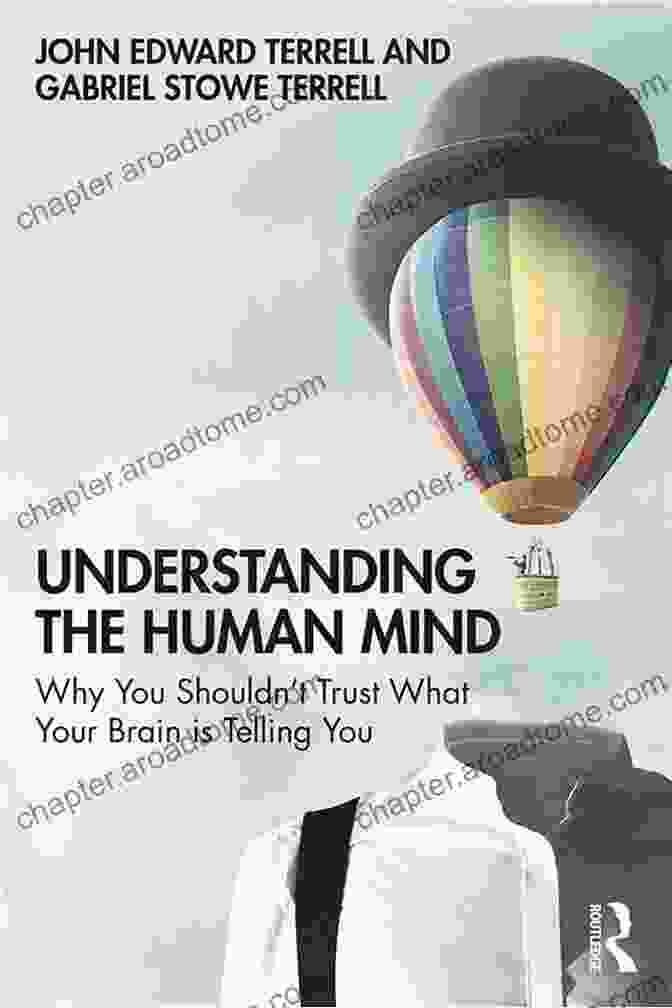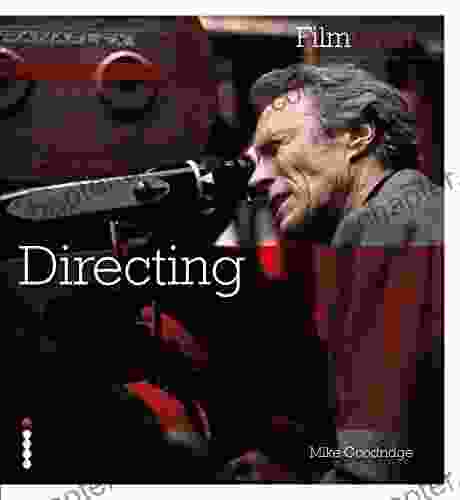Unveiling the Human Mind's Hidden Treasures: The Profound Insights of What Deficits Reveal


In the realm of cognitive neuroscience, where the mysteries of the human mind are diligently explored, deficits - impairments in cognitive abilities - have emerged as a valuable window into the intricate workings of our mental processes. The groundbreaking book, "What Deficits Reveal About the Human Mind," embarks on a captivating journey to uncover the profound insights that can be gleaned from these impairments.
5 out of 5
| Language | : | English |
| File size | : | 9691 KB |
| Text-to-Speech | : | Enabled |
| Screen Reader | : | Supported |
| Enhanced typesetting | : | Enabled |
| Word Wise | : | Enabled |
| Print length | : | 553 pages |
Navigating the Landscape of Deficits
Deficits manifest in diverse forms, ranging from language impairments to memory disFree Downloads and beyond. While they may pose challenges to individuals, they also offer a unique vantage point from which scientists can observe the cognitive architecture of the mind. By meticulously analyzing the patterns of deficits, researchers can infer the underlying neural mechanisms that support various cognitive functions.
The book delves into a comprehensive exploration of different types of deficits, providing detailed case studies that illustrate how these impairments can shed light on the brain's functional organization. From aphasia, a language disFree Download that disrupts speech production, to agnosia, an inability to recognize familiar objects, each deficit offers a distinct piece of the puzzle in understanding the intricate tapestry of the human mind.
Uncovering the Functional Architecture of the Mind
Through meticulous research, scientists have discovered that deficits often arise from damage to specific brain regions or neural pathways. By mapping these impairments to their corresponding neural substrates, researchers can construct an intricate map of the mind's functional architecture.
The book delves into the groundbreaking work of renowned neuroscientists who have pioneered the use of neuroimaging techniques, such as fMRI and PET scans, to visualize brain activity in real-time. These cutting-edge tools allow scientists to observe the neural correlates of cognitive processes and pinpoint the specific brain regions involved in various functions.
Decoding the Language of Deficits
Language, a cornerstone of human cognition, is a particularly fertile ground for exploring the insights offered by deficits. Aphasia, the impairment of language abilities, has been extensively studied, revealing the existence of distinct language processing centers in the brain.
The book explores the pioneering research of neuropsychologists who have analyzed the specific patterns of language deficits in aphasic patients. By carefully dissecting the linguistic errors and preserved abilities, scientists have gained invaluable insights into the modular organization of language processing, uncovering the distinct neural circuits responsible for different aspects of language, such as grammar, vocabulary, and semantics.
Memory, the Tapestry of the Past
Memory, the bedrock of our experiences and the foundation of our sense of self, is another cognitive domain where deficits have yielded profound insights. Amnesia, a devastating memory impairment, has been a subject of intense scientific scrutiny, providing a unique window into the complex mechanisms of memory formation and retrieval.
The book delves into the fascinating findings of memory researchers who have studied individuals with amnesia, exploring the different types of memory impairments and their implications for understanding the brain's memory systems. From anterograde amnesia, the inability to form new memories, to retrograde amnesia, the loss of memories from the past, each deficit offers a glimpse into the intricate workings of our memory apparatus.
Beyond Impairment: Embracing the Strength of Deficits
While deficits can undeniably pose challenges, the book also highlights their potential as a source of strength and resilience. By understanding the underlying cognitive mechanisms of deficits, individuals can develop compensatory strategies to mitigate their impact and unlock their full potential.
The book features inspiring stories of individuals who have triumphed over cognitive impairments, demonstrating the remarkable capacity of the human brain to adapt and find new pathways to success. These stories serve as a testament to the indomitable spirit of the human mind and the transformative power of embracing one's strengths.
: A Journey of Discovery and Empowerment
"What Deficits Reveal About the Human Mind" is an extraordinary exploration of the profound insights that can be gleaned from cognitive impairments. By delving into the intricacies of deficits, the book illuminates the functional architecture of the mind, unravels the language of cognitive processes, and uncovers the remarkable resilience of the human spirit.
This groundbreaking work is an essential read for anyone seeking a deeper understanding of the human mind, whether they are neuroscientists, psychologists, educators, or simply individuals curious about the inner workings of their own consciousness. Through its captivating blend of scientific rigor and human stories, the book empowers readers to embrace the challenges posed by deficits and unlock the hidden potential that lies within.
Join the journey into the depths of the human mind and discover the extraordinary revelations hidden within deficits.
5 out of 5
| Language | : | English |
| File size | : | 9691 KB |
| Text-to-Speech | : | Enabled |
| Screen Reader | : | Supported |
| Enhanced typesetting | : | Enabled |
| Word Wise | : | Enabled |
| Print length | : | 553 pages |
Do you want to contribute by writing guest posts on this blog?
Please contact us and send us a resume of previous articles that you have written.
 Book
Book Novel
Novel Page
Page Chapter
Chapter Text
Text Story
Story Genre
Genre Reader
Reader Library
Library Paperback
Paperback E-book
E-book Magazine
Magazine Newspaper
Newspaper Paragraph
Paragraph Sentence
Sentence Bookmark
Bookmark Shelf
Shelf Glossary
Glossary Bibliography
Bibliography Foreword
Foreword Preface
Preface Synopsis
Synopsis Annotation
Annotation Footnote
Footnote Manuscript
Manuscript Scroll
Scroll Codex
Codex Tome
Tome Bestseller
Bestseller Classics
Classics Library card
Library card Narrative
Narrative Biography
Biography Autobiography
Autobiography Memoir
Memoir Reference
Reference Encyclopedia
Encyclopedia Viola Voltairine
Viola Voltairine Paul Browning
Paul Browning Patrick J Knapp
Patrick J Knapp Neil Mcclure
Neil Mcclure Ray Ortlund
Ray Ortlund Michelle Macnamara
Michelle Macnamara Nathan Barry
Nathan Barry Michael Krell
Michael Krell Paul Aertker
Paul Aertker S Terrell French
S Terrell French Michael Grant
Michael Grant Michael Davison
Michael Davison Henry Emerson
Henry Emerson Rainer Grimm
Rainer Grimm Vic Glover
Vic Glover N D Hari Dass
N D Hari Dass Mohit Thakkar
Mohit Thakkar Minna Lyons
Minna Lyons Nicholas P Money
Nicholas P Money Stefan E Schulenberg
Stefan E Schulenberg
Light bulbAdvertise smarter! Our strategic ad space ensures maximum exposure. Reserve your spot today!
 Cormac McCarthyFollow ·11.4k
Cormac McCarthyFollow ·11.4k Kyle PowellFollow ·8.5k
Kyle PowellFollow ·8.5k Dan BellFollow ·2.4k
Dan BellFollow ·2.4k Israel BellFollow ·5.5k
Israel BellFollow ·5.5k Theodore MitchellFollow ·3.3k
Theodore MitchellFollow ·3.3k Ernest J. GainesFollow ·14.1k
Ernest J. GainesFollow ·14.1k Juan ButlerFollow ·8.3k
Juan ButlerFollow ·8.3k Caleb LongFollow ·13.7k
Caleb LongFollow ·13.7k

 Samuel Beckett
Samuel BeckettPortrait of the Plague Doctor: A Chilling Tale of Fear...
Prologue: A...

 Elliott Carter
Elliott CarterTrends in Modeling and Simulation Studies in...
Unveiling the Convergence of...

 Natsume Sōseki
Natsume SōsekiCells For Kids: Science For Children
Unlock the Microscopic...

 Anthony Wells
Anthony WellsUnlock the Power of Understanding: Embrace the African...
Embark on a Journey of Truth,...

 Forrest Reed
Forrest ReedBreaking Free: Healing from Toxic Relationships Between...
Are you struggling...
5 out of 5
| Language | : | English |
| File size | : | 9691 KB |
| Text-to-Speech | : | Enabled |
| Screen Reader | : | Supported |
| Enhanced typesetting | : | Enabled |
| Word Wise | : | Enabled |
| Print length | : | 553 pages |













